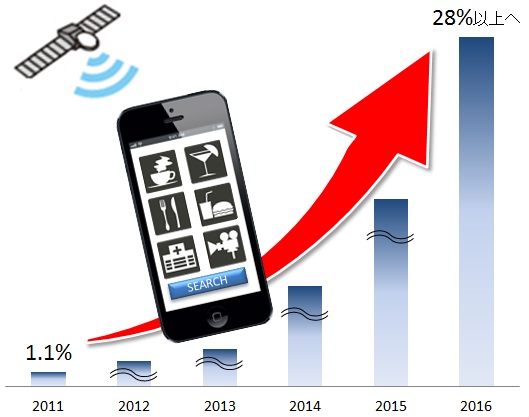Your Mobile Presence: Native App or Web App
As mobile internet connectivity surges worldwide, there is no longer any question about establishing a mobile presence. Rather, it is an imperative.
Recent reports indicate that mobile devices will soon overtake PCs as the primary source for internet access. Already in China, which has 485 million internet users (more than the combined populations of the US and Japan), 65.5% of online access is from mobile devices.
So what's the best way to engage mobile users, with a native app or web app?
Answer: It all depends.
Native apps have the advantage of providing a more responsive and engaging user experience that is easily customizable to maximize the capabilities of specific devices. Since they live on the device, native apps are usable offline and aren't burdened with size limitations that constrain web apps, allowing for unlimited functionality and complex graphics. They can also leverage the functionality of the device (such as camera, GPS, motion detection, etc.) and employ "push notification" to automatically contact users and draw them back to the app via text messages or other alerts. Moreover, retail native apps generate an immediate income stream from sales of the app itself, which can then be used to access free or paid online content.
One major drawback of native apps is development cost, which is typically greater than for web apps. This includes the need to create versions for different platforms (iOS, Android, RIM, etc.), both for the initial rollout and future updates. Development and delivery times are also longer due to the need to test across platforms and receive approval from app stores. Discovery can also be a downside, since your app will be one of many hundreds of thousands in the app stores.
While web apps are still unable to provide as rich an environment as native apps (despite HTML5, CSS3 and advances in JavaScript), they definitely have compelling upsides, mainly cost and immediacy. Web apps don't come with the overhead of native apps in terms of development cost and time. They can be quickly deployed using content from existing websites, and updates don't require additional rounds of testing and app store approval. Discovery is fast, too, since no download is required; users simply enter your company's normal URL, which can be bookmarked on the desktop of a smartphone like a native app. Another huge advantage is that web apps can be accessed from less expensive internet-capable mobile phones while native apps require a smartphone.
If you want mobile content to closely mirror your standard company website while extending your reach to non-smartphone users, a web app makes excellent sense in terms of development/update cost and time. Also, if your content risks being deemed inappropriate by curated app stores and hence denied access, go the safe route and create a web app, the content of which is entirely up to you.
When planning your mobile presence, closely examine your communication and marketing goals as well as execution and expected ROI. And stay current with trends in the mobile field. Some of the newer development tools use HTML5 to create a hybrid mobile app that can be complied to run natively for release through app stores.
Japanese articles may not fully reflect English content.








